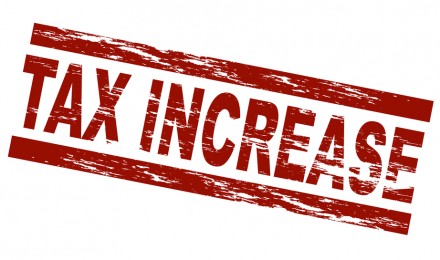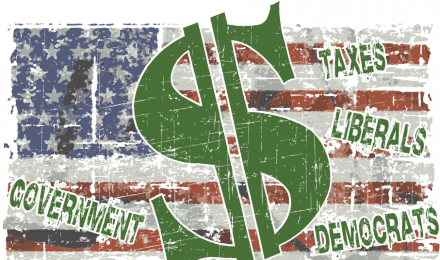By now you have most likely heard of the fiscal cliff. Most news stations are reporting on it, and many politicians are talking about what they will do to resolve it. But what does it mean to you? Basically put, the fiscal cliff means the end of many tax cuts, and the beginning of government budget cuts. While nobody likes paying more taxes, they are an integral part of keeping the country running. And cutting back on spending is always great for the budget. But when all these things happen at once, experts believe it could lead us straight into another recession.
There are two sets of tax cuts that are scheduled to expire at the end of this year. The Bush era tax cuts and the payroll tax cuts will drop off soon. In 2010 Obama signed a law that cut 2% off everyone’s FICA taxes (those are the taxes that fund Social Security and Medicare). That cut will expire at the end of 2012, and starting January first everyone will be once again obligated to pay more in their taxes, unless this cut is extended.
FICA taxes are imposed on the first $110,000, and anything over that amount does not see these taxes. Therefore, the most a person can expect to see (from this one tax cut expiration) will be $2,200. It does not seem like a lot, but when it is coupled with other tax increases, it can have some devastating effects on the economy.
So as a consumer, a tax payer, and a financially savvy adult, what does this mean for you? Really, it means you should not change a thing. You should continue to save, continue to invest, and hopefully you have enough income that you will not notice the 2% change in your taxes. If anything, you may have to reduce your discretionary spending. That means eating out a little less, and not spending quite as much on “frivolous” items. If these tax cuts are extended it will have drastic long term implications, but if they are not extended there could be drastic short term implications.
Tax cuts are almost always temporary. They are a way for the government to encourage people to make more money, and to help stave off a recession or depression. However, when wars come to an end, and the economy has recovered from a downturn, the government will need more money. In the past taxes have gone up after every war and after every recession. It is foolish to think they will not go up this time. If nothing is done, we will plunge over the fiscal cliff and likely into another recession. In order to keep things going, we all must dig in, work a little harder, and pay our fair share of taxes. And that usually means giving a little extra. Preparing for it now will help you keep your finances on track after 2013 starts.
By now you have most likely heard of the fiscal cliff. Most news stations are reporting on it, and many politicians are talking about what they will do to resolve it. But what does it mean to you? Basically put, the fiscal cliff means the end of many tax cuts, and the beginning of government budget cuts. While nobody likes paying more taxes, they are an integral part of keeping the country running. And cutting back on spending is always great for the budget. But when all these things happen at once, experts believe it could lead us straight into another recession.
There are two sets of tax cuts that are scheduled to expire at the end of this year. The Bush era tax cuts and the payroll tax cuts will drop off soon. In 2010 Obama signed a law that cut 2% off everyone’s FICA taxes (those are the taxes that fund Social Security and Medicare). That cut will expire at the end of 2012, and starting January first everyone will be once again obligated to pay more in their taxes, unless this cut is extended.
FICA taxes are imposed on the first $110,000, and anything over that amount does not see these taxes. Therefore, the most a person can expect to see (from this one tax cut expiration) will be $2,200. It does not seem like a lot, but when it is coupled with other tax increases, it can have some devastating effects on the economy.
So as a consumer, a tax payer, and a financially savvy adult, what does this mean for you? Really, it means you should not change a thing. You should continue to save, continue to invest, and hopefully you have enough income that you will not notice the 2% change in your taxes. If anything, you may have to reduce your discretionary spending. That means eating out a little less, and not spending quite as much on “frivolous” items. If these tax cuts are extended it will have drastic long term implications, but if they are not extended there could be drastic short term implications.
Tax cuts are almost always temporary. They are a way for the government to encourage people to make more money, and to help stave off a recession or depression. However, when wars come to an end, and the economy has recovered from a downturn, the government will need more money. In the past taxes have gone up after every war and after every recession. It is foolish to think they will not go up this time. If nothing is done, we will plunge over the fiscal cliff and likely into another recession. In order to keep things going, we all must dig in, work a little harder, and pay our fair share of taxes. And that usually means giving a little extra. Preparing for it now will help you keep your finances on track after 2013 starts.







